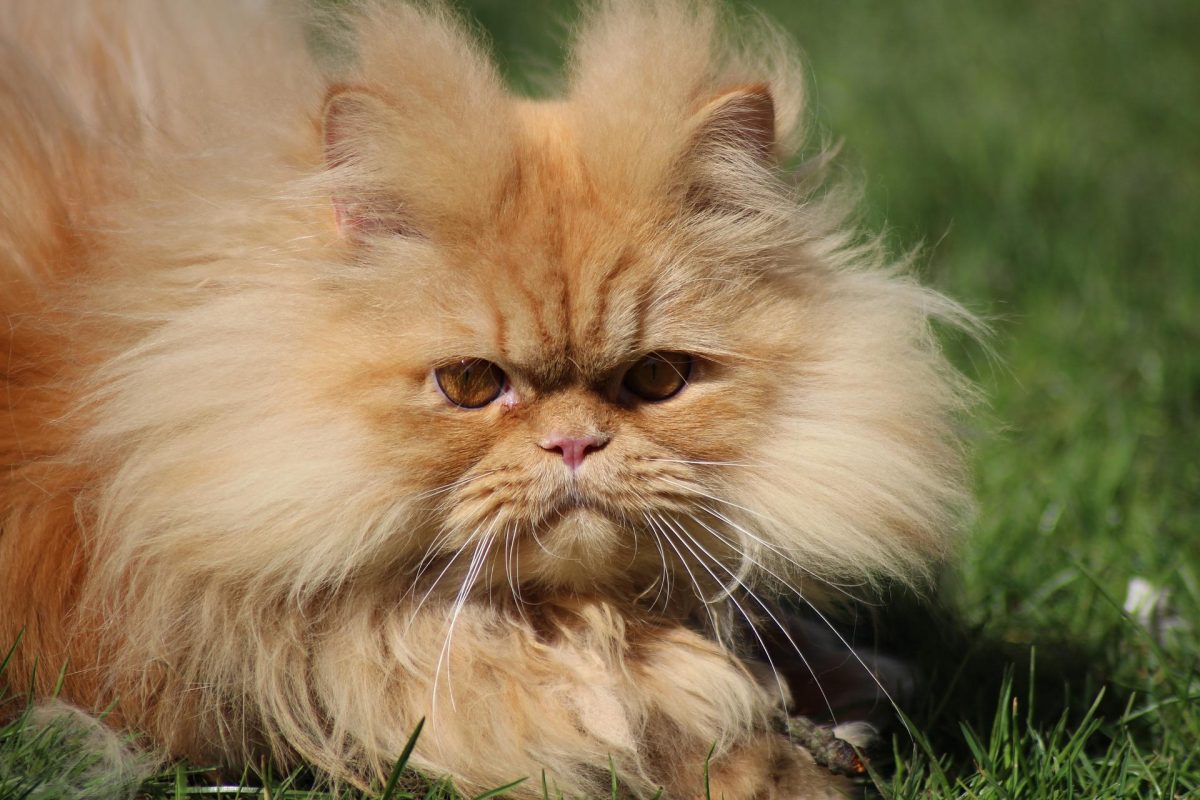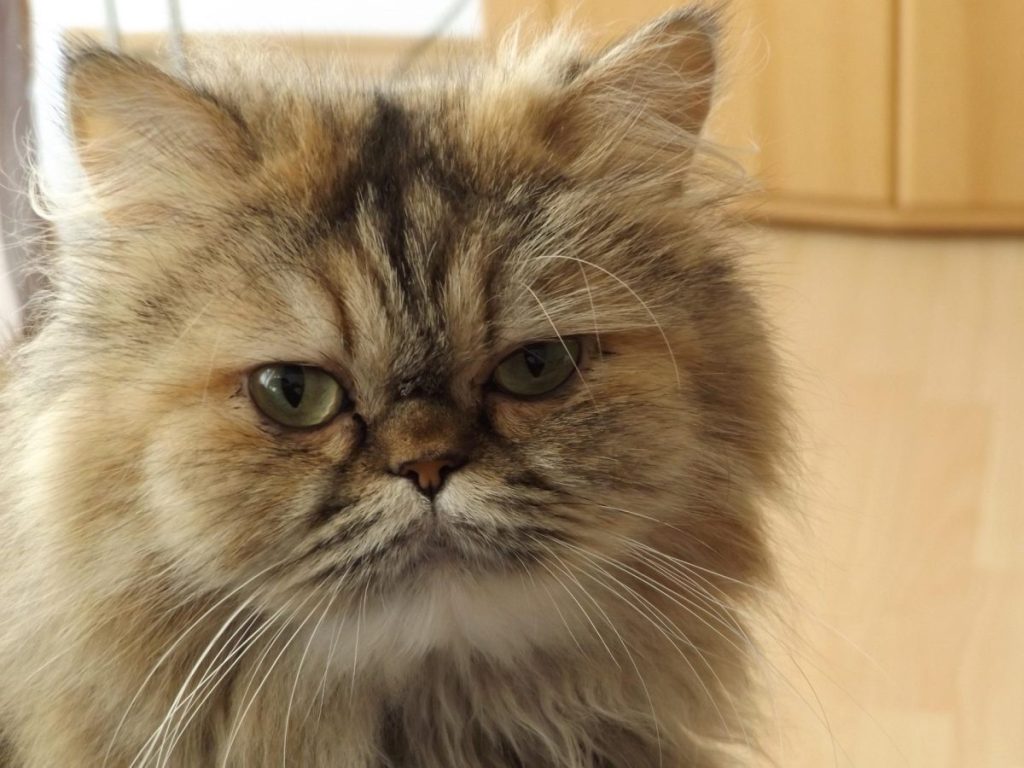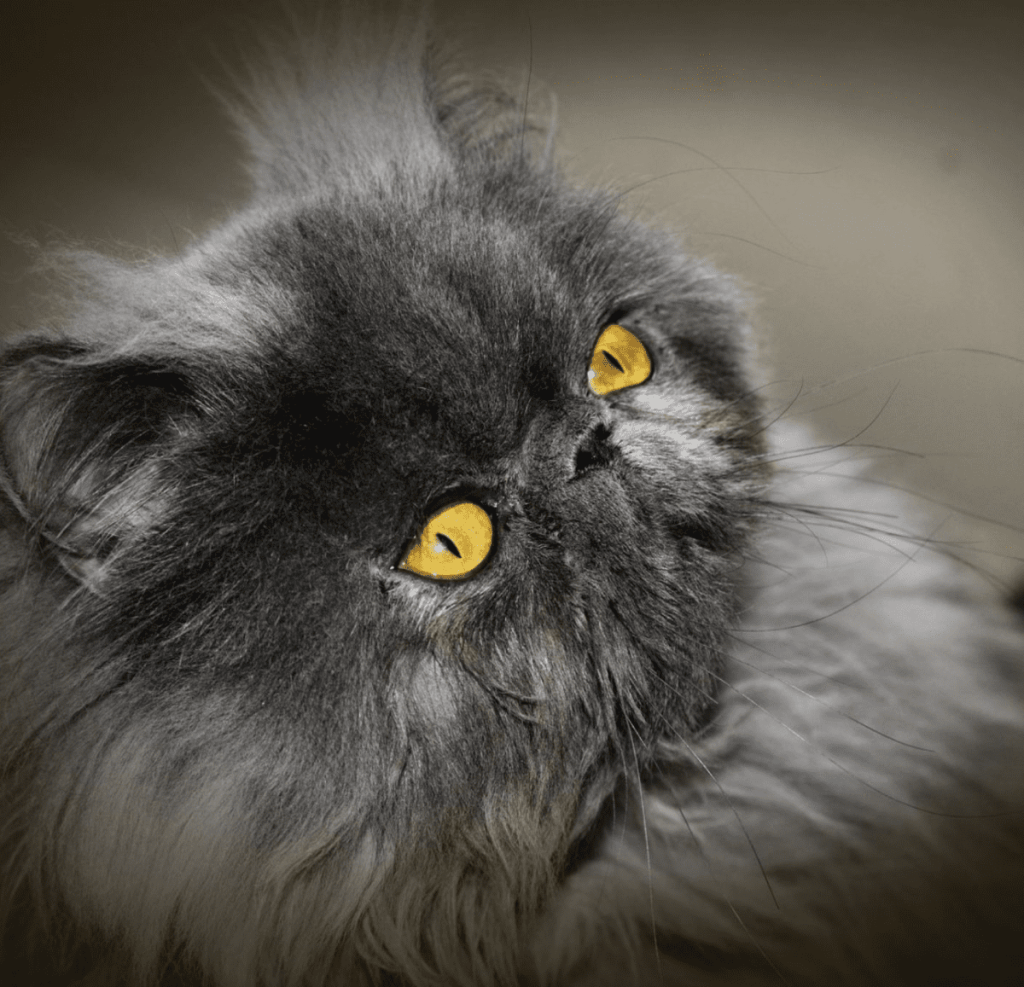
Love Persian Cats? Things to Know About This Amazing Cat Breed
13 Jan 2023.
When you see a Persian cat, the first thing you probably think of is elegance. This breed is famous for its beautiful and noble appearance. But do their personalities match their looks? Below, Cat in a Flat tells you everything you need to know about the majestic Persian cat breed.
Table of contents
Where are Persian cats from?
Persians certainly have a particularly interesting feline history. As one of the oldest breeds in the world, their roots can be traced all the way back to the 1600s. Although we’re not sure where Persian felines really originate from, it’s believed that they are descendants of the white Turkish angora and the purebred Persian cat from Persia (now Iran).
However, what we know as the modern-day Persian cat first appeared in 19th century England as the result of crossbreeding between the two cat types from Turkey and Iran. Despite their origins, it wasn’t until the 20thcentury that the term ‘Persian’ was given to this feline breed.

How to tell if my kitty is Persian
This cute cat breed has some very distinctive features that set them apart from other felines. If you’re not sure whether Mr Whiskers is Persian or a Persian mix, these are the characteristics to look out for!
- Size: Persian cats are a medium-sized breed with a broad, short appearance. Males can weigh around 12 lbs and females between 8-12 lbs. However, because of their long fur, Persian felines appear larger than they are.
- Looks: These kitties are easily identifiable by their large eyes, round face, and short/flat muzzle.
- Colours: As mentioned above, Persians have long, soft fur. They can come in many colours and patterns—both solid, multi-coloured, or with calico cat type coats. The colour of a Persian cat’s eyes can vary depending on the colour of their fur. For example, white Persians tend to have deep blue or copper eyes, while silver or golden Persians have green eyes.
- Lifespan: A healthy Persian feline can live between 8-11 years.
Persian personality: is a Persian cat right for me?
You may be tempted to get a Persian because of their adorable looks, but before bringing a new kitty into your life you should make sure that their personality suits you (and vice versa). As far as personality goes, many consider Persian cats to be the purrfect fur friends. By nature, Persian kitties are mellow and relaxed. These friendly felines prefer quiet environments but are adaptable to more active households too.
Their patient and gentle personalities also mean they get along with children and other pets. So, if you already have kitties and you’re thinking of bringing another feline into the home, it’s likely a Persian cat will easily make friends with your other cats. To ensure a peaceful household, just be sure to take the proper steps when introducing a new kitty.
All cats sleep a lot, but our Persian fur friends are perhaps a bit more snooze-loving than most. This breed would much rather lounge on the couch (or sleep on top of you) than run around and play.
How to care for a Persian cat
Are you in love with the Persian breed and hoping to get one of your own? As amazing as their purrsonalities are, Persian cats are a high-maintenance breed and may require more essential daily cat care than other felines. Here are a few things to consider before you get a Persian.
- Coat care: Their long fur means your Persian cat will shed a lot and need to be groomed every day. Use a metal comb to prevent tangles. Establish a daily grooming routine and reward your kitty afterwards.
- Tear stains: Persian cats are prone to tear stains, so you should wipe Mr Whiskers face with a soft, clean cloth after brushing.
- Eating: Because Persians are a flat-faced breed, they have misaligned jaws which can lead to issues with their bite. This can be a problem when your Persian cat tries to pick up or chew food. Luckily, you can feed your cat food specifically for Persian felines. This food comes in a shape that is easier for a Persian kitty to eat.
- Drinking: It’s important to keep your kitty well-hydrated. However, the Persian cat’s flat face can make it difficult for them to drink from a bowl. Opt for a pet water fountain instead. It’s easier for a Persian feline to keep their face and chest dry when drinking from a fountain.
- Indoor living: Staying indoors is ideal for your Persian cat’s health. The good news is this actually makes them the perfect kitty for apartment living! However, since this breed isn’t naturally active, you will need to encourage your furry friend to exercise and play daily.
Note: When booking a cat sitter, make sure you invite them over to meet your Persian cat before you leave. This way you can explain in person your fur friend’s unique grooming and other care needs. Take your time finding the right cat sitter for your Persian cat (or any fur friend) as a good sitter-feline relationship is important for your kitty’s health too!

Other things to know about Persian cats
In general, the Persian feline breed is quite healthy and robust. However, there are still some health issues to be aware of if you’re considering owning a Persian cat.
Kidney disease
There are studies that suggest this breed is more likely to suffer from kidney disease. This is a hereditary disease where cysts form on the kitty’s kidneys and grow over time. Symptoms generally begin to show at around 7 years old and can include:
- Sudden weight loss
- Vomiting
- Increased thirst (which can also be signs of a diabetic cat)
- Weak immune system
Brachycephalic syndrome
This is a respiratory disease that can affect cats with flat faces. Because of their short muzzles, some Persians may experience obstructions or difficulty breathing. Symptoms can grow worse over time, so it’s important to treat this syndrome early. Symptoms include:
- Noisy breathing
- Difficulty exercising
- Fainting after exercising or from excitement
Should you get a Persian?
Because of their breeding, Persian cats can suffer from a long list of medical issues. Not only can this be pricey for you, but it may make life difficult for your kitty too. Their features make it impossible for them to survive in their own, so some consider breeding Persian cats to be unethical. Hence, you should consider the ethics carefully before choosing to bring this cat breed into your life.
Of course, only you can determine if a Persian cat is the right fit for your personality and lifestyle. As long as you educate yourself on their potential health issues and do your research on how to properly look after your Persian, he or she can make a wonderful long-term companion.
Looking for more tips on caring for your kitty? Read up on how to make your home more feline friendly and ways to help your cat adjust whenever you’re away from home.
- #catinaflat
- #pet care
- Cat Care
- Persian cat care
- Persian cat facts
- Persian cats


